This article is reviewed by an expert

Have you heard of Amaltas?
Also known as Cassia fistula Linn., Amaltas is a remarkable plant belonging to the Caesalpinaceae family. It has been used in traditional medicine for centuries to address a wide range of health concerns, including diabetes, skin diseases and more (1).
Let’s explore the many incredible benefits and applications of Amaltas in this article and discover how it can enhance your life.
Medicinal and Nutritional Value of Amaltas (2)
Amaltas hold significant medicinal and nutritional potential. Its rich composition of tannins, flavonoids, and glycosides makes it a valuable resource for health and nutrition. The plant is also abundant in carbohydrates, linoleic, oleic, and stearic acids, which contribute to its nutritional value.
Furthermore, various parts of the Amaltas plant contains distinct compounds and components, making each part useful for medicinal purposes. The flower pollen contains phenylalanine, methionine, glutamic acid, and proline while the leaves of Cassia fistula are primarily composed of oxalic acids, tannins, and oxy anthraquinones. The fruit of the plant contains rhein glycosides fistulic acids, sennosides A B, anthraquinones and flavanoid-3-ol-derivatives.
Additional constituents found in Amaltas include ceryl alcohol, kaempferol, bi anthraquinone glycosides, fistulin, essential oils, volatile components, phytol, 2-hexadecanone, crystals, and 4-hydroxy benzoic acids hydrate.
Amaltas Benefits
- Antidiabetic Potential (1)
- Primary Benefits: The bark extract of Amaltas demonstrates significant antidiabetic effects in alloxan-induced diabetic rats.
- Secondary Benefits: As such, Amaltas can help regulate blood sugar levels and manage diabetes.
- Antioxidant Activity (1)
- Primary Benefits: Amaltas extracts possess significant antioxidant activity that helps protect against lipid peroxidation and free radical generation in liver and kidney tissues.
- Secondary Benefits: These antioxidant properties also make Amaltas valuable in combating oxidative stress and maintaining overall health.
- Liver Protection (1)
- Primary Benefits: Amaltas extracts show protective effects against liver injury induced by substances like carbon tetrachloride and diethylnitrosamine.
- Secondary Benefits: As such, Amaltas may help preserve liver health and prevent damage caused by harmful toxins.
- Nephroprotective Effect (1)
- Primary Benefits: Amaltas fruit extract has been studied for its protective effects against nephrotoxicity induced by certain substances.
- Secondary Benefits: This indicates that Amaltas may contribute to the maintenance of kidney function and protect against renal damage.
- Anti-Inflammatory Property (1)
- Primary Benefits: The aqueous extract of Amaltas leaves and fruits exhibits potent anti-inflammatory activity.
- Secondary Benefits: This property suggests that Amaltas may help reduce inflammation and alleviate associated symptoms.
- Antitussive Activity (1)
- Primary Benefits: The methanol extract of Amaltas demonstrates significant antitussive activity in mice.
- Secondary Benefits: This finding suggests that Amaltas may be effective in suppressing cough symptoms.
- Antimicrobial Effects (1)
- Primary Benefits: Amaltas exhibits significant antimicrobial properties against various microorganisms, including fungi and bacteria.
- Secondary Benefits: These antimicrobial properties make Amaltas useful in the prevention and treatment of several infectious diseases.
- Wound Healing (1)
- Primary Benefits: Amaltas extracts help accelerate wound closure and demonstrates favourable histopathological parameters related to wound healing.
- Secondary Benefits: These findings suggest that Amaltas may aid in the healing process of wounds and support tissue regeneration.
- Hypolipidemic Activity (2)
- Primary Benefits: The ethanolic extract of Cassia Fistula legume has shown promising results in regulating lipid metabolism.
- Secondary Benefits: As such, it helps prevent the increase of total and LDL-cholesterol, triglycerides, and phospholipids in the bloodstream.
- Anti-Leishmaniatic Activity (2)
- Primary Benefits: The hexane extract from Amaltas fruits exhibits significant antileishmanial activity, making it effective against Leishmania L. chagasi.
- Secondary Benefits: The extract also contains clerosterol, which demonstrates inhibitory effects against the parasite in different models.
- Anti-Ulcer Activity (2)
- Primary Benefits: Amaltas leaf extract has been evaluated for its anti-ulcer activity. It shows promising results in protecting against pylorus ligation-induced gastric ulcers.
- Secondary Benefits: This property makes it a potential natural remedy for managing gastric ulcer conditions.
- Antiparasitic Activity (2)
- Primary Benefits: The dichloromethane extract of Amaltas fruits demonstrates potent antileishmanial activity. The active compound, biochanin A, found in Amaltas fruits, shows effectiveness against Leishmania (L.) chagasi promastigotes and peritoneal macrophages.
- Secondary Benefits: It also exhibits activity against Trypanosoma cruzi, making it a potential solution for parasitic infections.
- Anti-Itching Activity (2)
- Primary Benefits: Amaltas shows significant efficacy in managing eczema, a chronic skin disease. It helps reduce serum IgE levels, a common immunological marker for eczema.
- Secondary Benefits: This property suggests its potential for alleviating itching and managing the symptoms of this condition.
- Antifertility Activity (2)
- Primary Benefits: The petroleum ether extract of Amaltas seeds demonstrates antifertility activity in female albino rats. It decreases fertility index, the number of uterine implants, and live fetuses in a dose-dependent manner.
- Secondary Benefits: This extract also exhibits pregnancy-terminating effects and can be explored further for its potential contraceptive properties.
- Laxative Activity (2)
- Primary Benefits: Amaltas pods are found to possess laxative properties.
- Secondary Benefits: The infusion of Cassia Fistula pods also exhibits low levels of toxicity, making it a safe alternative to official laxative drugs.
- Antiepileptic Activity (2)
- Primary Benefits: The methanolic extract of Amaltas seeds shows anticonvulsant activity against pentylenetetrazol-induced convulsions in mice. It reduces the duration of clonic convulsions and delays the onset of convulsions.
- Secondary Benefits: This suggests its potential as a natural remedy for managing epilepsy and seizure disorders.
Amaltas Ayurvedic Uses (1)
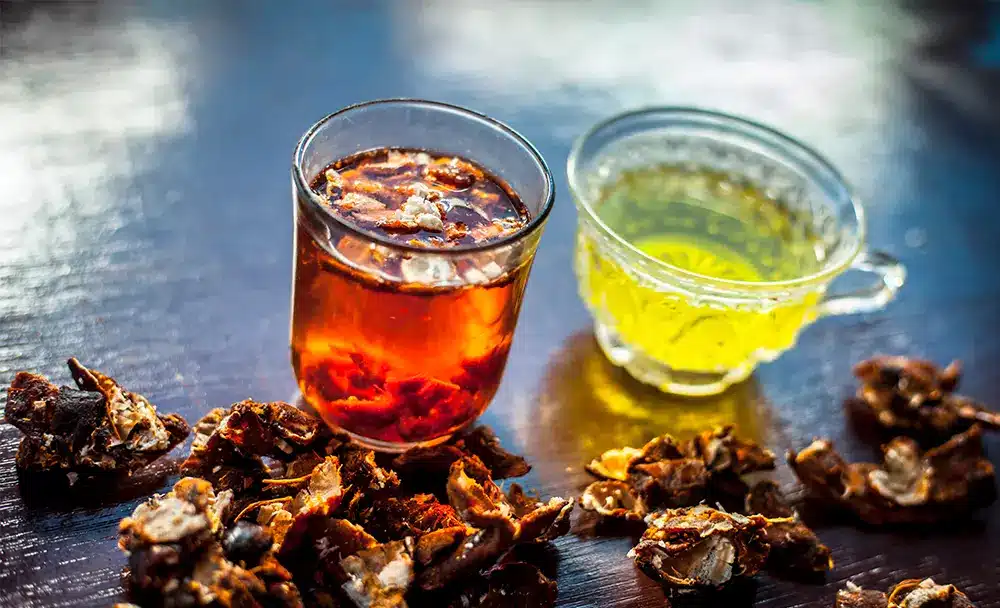
In Ayurveda, Amaltas, also known as the Golden Shower Tree, is revered for its wide range of medicinal properties. Each part of the plant is recognized for its therapeutic benefits, making it a versatile remedy in Ayurveda.
- Fruit Pulp: The fruit pulp of Amaltas is used as a mild laxative, aiding in relieving constipation. It is also known to be beneficial for cardiac conditions and stomach problems such as acid reflux.
- Flowers: The flowers of Amaltas are used in the treatment of fever, helping to reduce elevated body temperature.
- Root: In Ayurveda, the root of Amaltas is used as a diuretic, promoting urine flow. It is also known for its effectiveness in treating various conditions, including adenopathy, burning sensations, leprosy, skin diseases, syphilis, and tubercular glands.
- Bark and Leaves: The bark and leaves of Amaltas are used in the management of skin diseases, offering potential relief and healing.
- Seeds: Amaltas seeds are recognized in Ayurveda for their antibilious, aperitif, carminative, and laxative properties. They can help alleviate digestive issues and promote healthy bowel movements.
- Other Uses: The leaves of Amaltas are also used for erysipelas, malaria, rheumatism, and ulcers, while the buds are employed to address biliousness, constipation, fever, leprosy, and skin diseases.
In addition, Ayurveda also uses its fruits to treat abdominal pain, constipation, fever, heart disease, and leprosy.
How To Use Amaltas (1)?
Amaltas can be used in various forms for its therapeutic properties, such as flower powder, fruit pulp, tablets, syrup and decoction.
Amaltas Side Effects (1)
Amaltas is usually safe for consumption by all. However, in large doses, the leaves and bark of Amaltas (Cassia fistula) can lead to certain side effects, such as vomiting, nausea, abdominal pain, and cramps.
Therefore, it is advised to consult an Ayurvedic practitioner before consuming Amaltas.
The Takeaway
Amaltas, also known as Cassia fistula Linn., is an incredible plant that has been used in traditional medicine for centuries. It offers several benefits, ranging from diabetes management to liver protection.
Amaltas is also highly regarded in Ayurveda for its diverse therapeutic uses, with each part of the plant offering unique benefits.
FAQs (1)
1. Can Amaltas benefit my skin health?
Yes, Amaltas exhibits several properties, like anti-inflammatory, antioxidant and antimicrobial, that make it an excellent herb for skin health.
2. Is Amaltas safe for consumption?
Amaltas is generally safe for consumption. However, it’s important to consult an Ayurvedic practitioner before using it, especially before consuming large doses.
3. Can I consume Amaltas if I have diabetes?
Yes, Amaltas has significant antidiabetic effects and can help regulate blood sugar levels in people with diabetes.
Disclaimer: The information provided here is for general information and not meant to substitute any medical advice. Please consult your doctor for appropriate medical consultation.














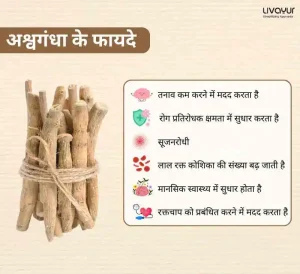
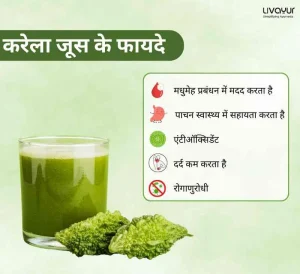
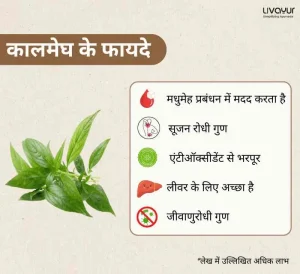
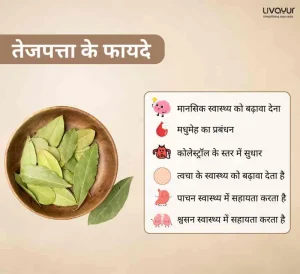




4 Comments
Comments are closed.